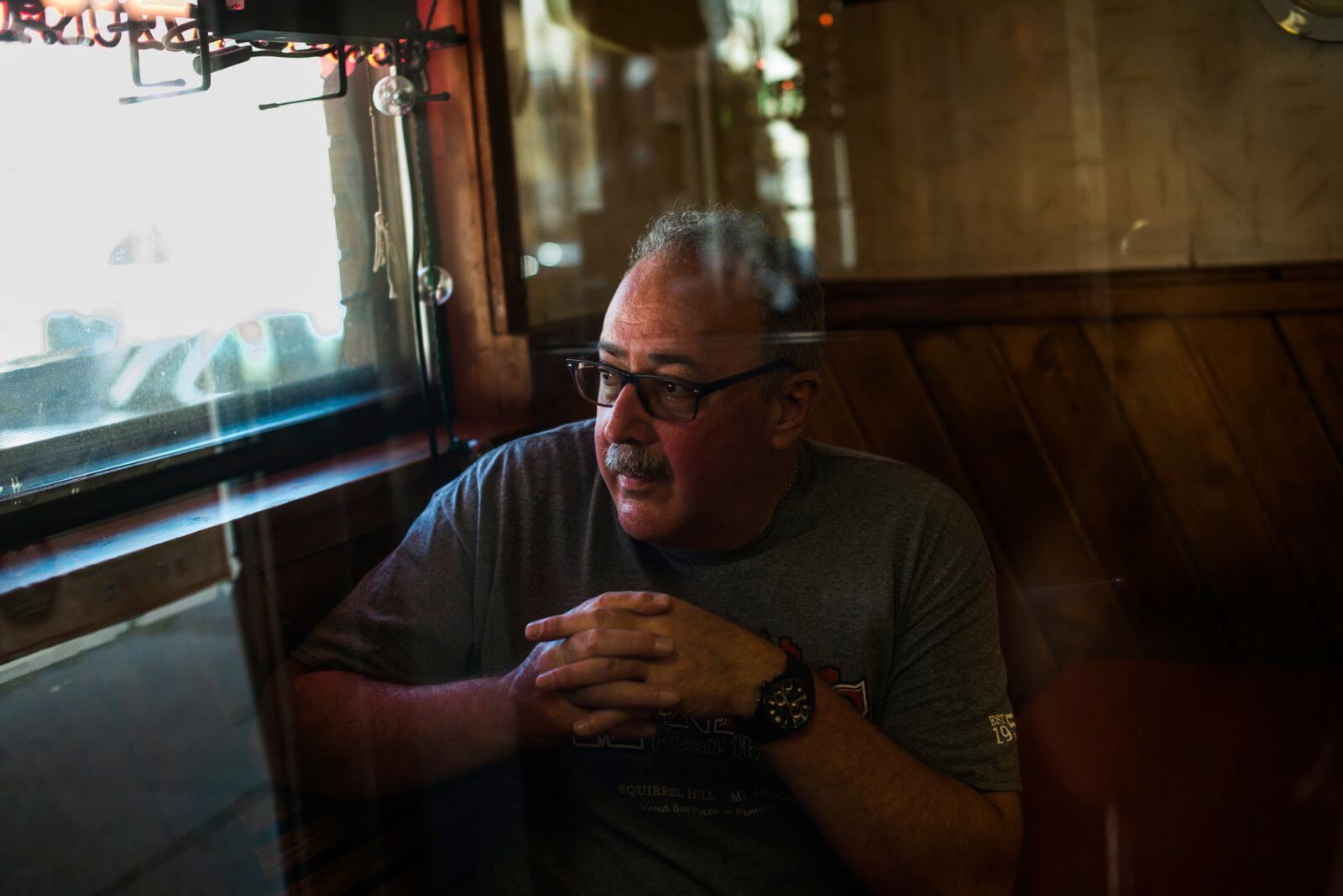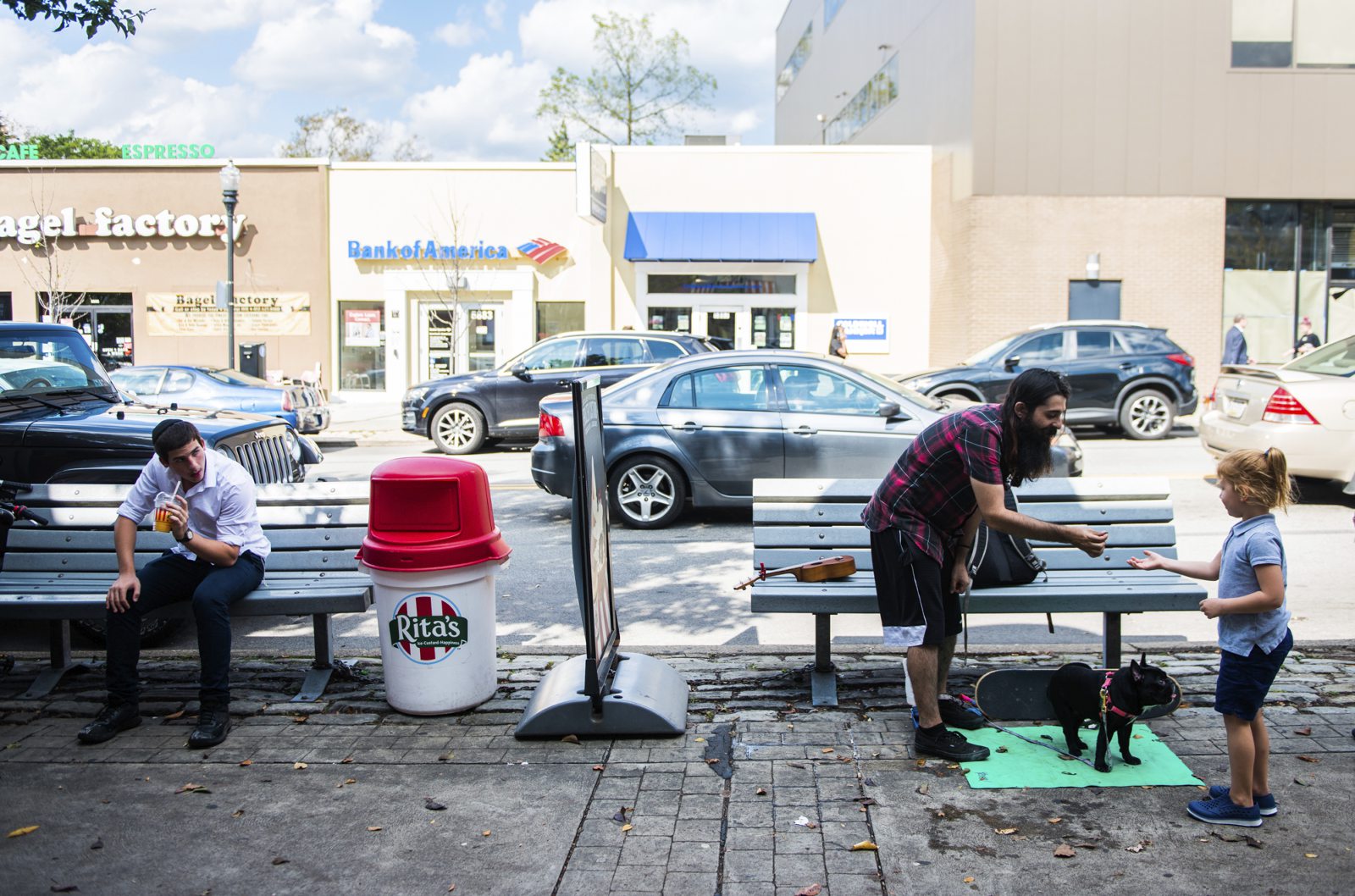By BEN SCHMITT
Squirrel Hill, for many who grew up in Pittsburgh’s East End, conjures memories of movies at the Manor Theater and Friday night pizza in a neighborhood where diversity and acceptance have always been the norm.
Those memories remain strong even after Oct. 27, 2018, when a heavily armed man tried to tear through the fabric of that diversity.
 When news of the Tree of Life synagogue attack reached Andre Perry, he immediately hearkened back to childhood Friday nights at Mineo’s Pizza House.
When news of the Tree of Life synagogue attack reached Andre Perry, he immediately hearkened back to childhood Friday nights at Mineo’s Pizza House.
“I could smell the pizza. I could hear the laughter,” he said of the venerable Squirrel Hill hangout on Murray Avenue. “I remembered going there after high school track meets with my friends; many of them are Jewish.”
Growing up black in Wilkinsburg, Perry always saw Squirrel Hill as a haven for the mixing of cultures and races.
Mineo’s has thrived for decades in the primarily Jewish neighborhood. Across the street is an Indian restaurant. A Japanese dumpling restaurant is several doors down. A kosher market is a few blocks away.
“There were few places where you could go, be in an interracial space and it was normative,” said Perry, now a fellow at the Brookings Institution think tank in Washington, D.C. “You don’t see many places like Squirrel Hill with its legacy of bringing people together.”
As the one-year mark of the anti-Semitic attack grew closer, those directly affected by the shooting recall the same safe, welcoming Pittsburgh neighborhood.




